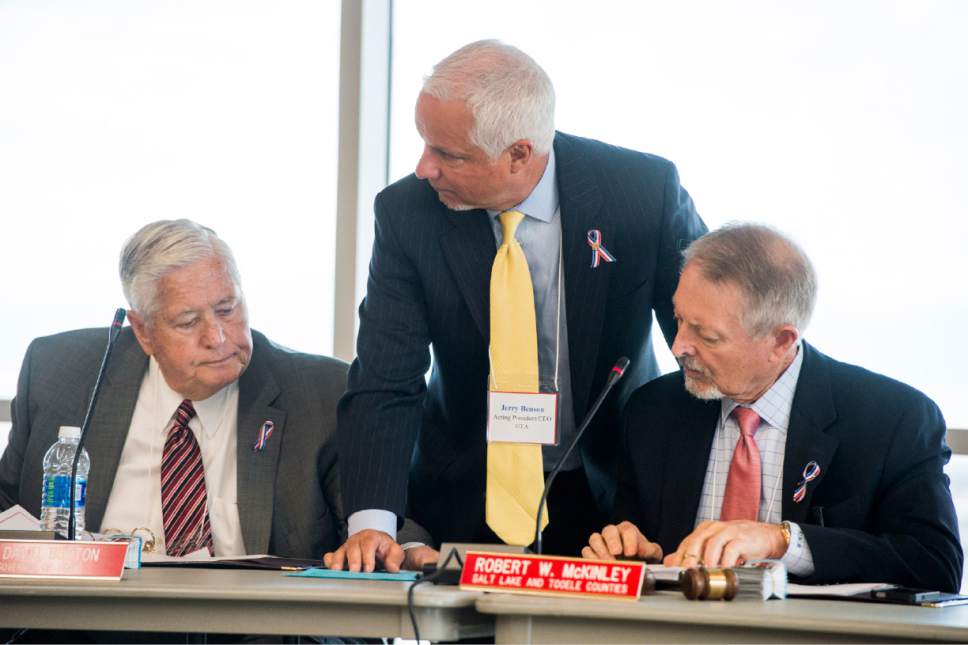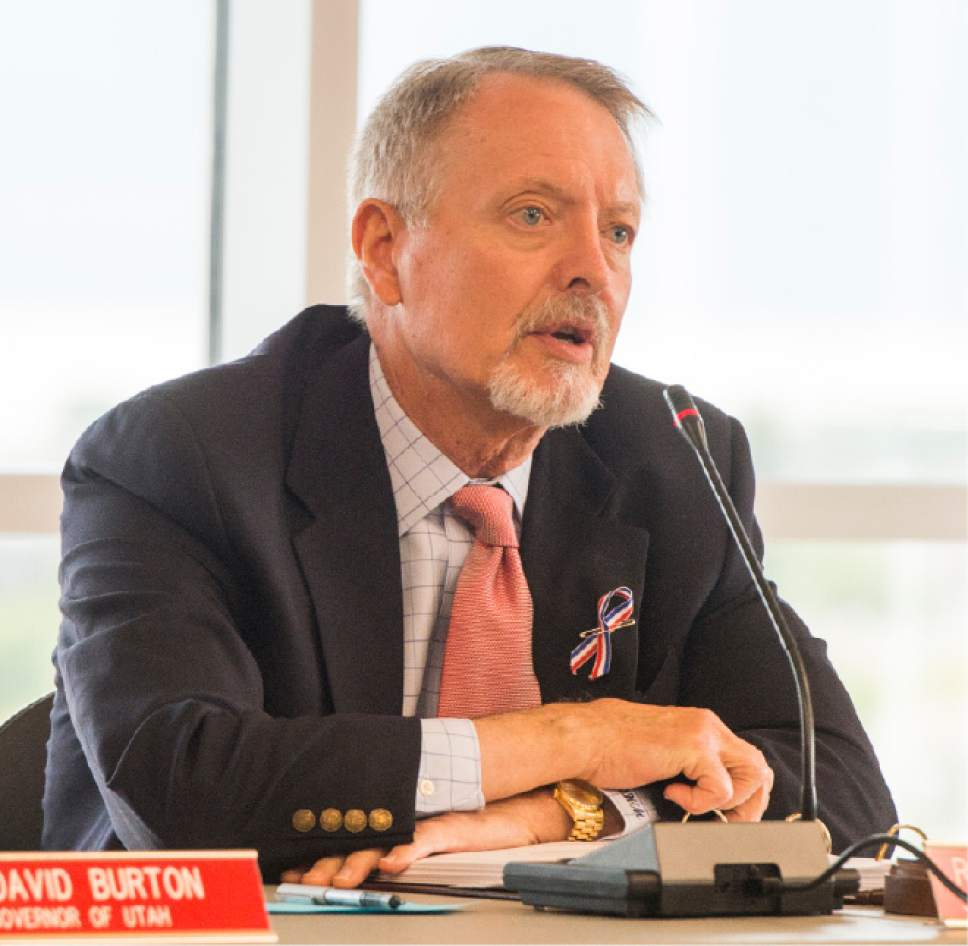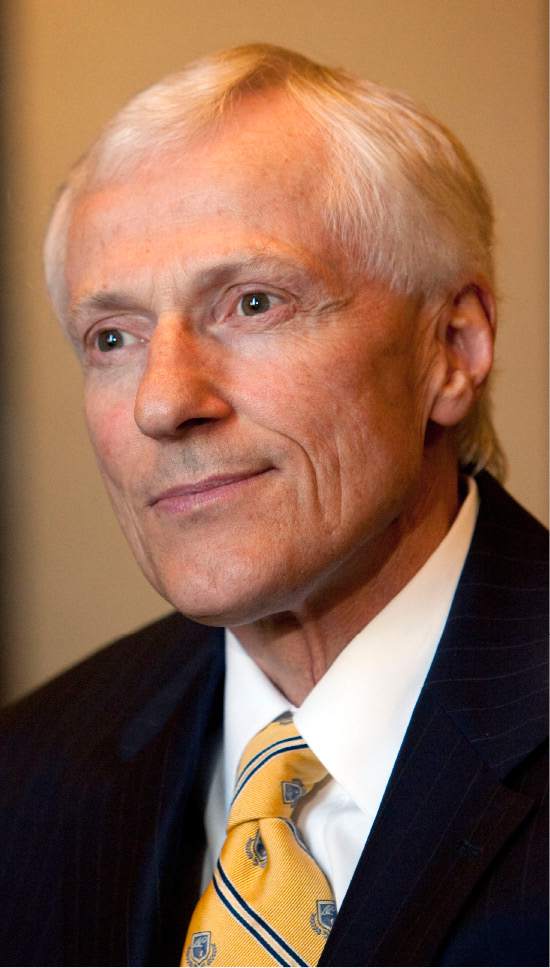This is an archived article that was published on sltrib.com in 2016, and information in the article may be outdated. It is provided only for personal research purposes and may not be reprinted.
After two often stormy years, former LDS Presiding Bishop H. David Burton resigned Wednesday from the Utah Transit Authority board and stepped down as its chairman. Members then elected vice chairman and labor lawyer Robert McKinley as the new chairman.
Gov. Gary Herbert replaced Burton on the board by appointing his former lieutenant governor, Greg Bell, who is now president and CEO of the Utah Hospital Association.
"Greg is a known statesman. His interactions with others are always fair and marked by integrity," Herbert said in a statement. He added that Bell "has the perspective and judgment to make decisions in a manner that earns the public's trust and confidence."
Burton leaves after recently being named chairman of the University of Utah Board of Trustees. He has said that leading both boards would be inappropriate and difficult.
McKinley, who works for the Kirton McConkie law firm, said that under Burton, the board faced "some pretty heavy criticisms of this organization and corrected them. We're not perfect yet. We're still dealing with some other issues," which he said include figuring how to transparently manage the board and its meetings.
The "board is committed to making certain that in the future this organization continues to run its transit, to do it in a way that is efficient and serves more people," McKinley said.
Board members gave Burton a standing ovation for his service, and Burton said he has never been associated "with a finer group."
Burton has led the UTA board since September 2014 and helped enact numerous reforms aimed at overcoming criticism in state audits about high executive salaries, extensive international travel and sweetheart deals with developers.
But he created controversy earlier this year when the board decided to close its committee meetings to the public, drawing widespread criticism from the public and elected officials, including the governor. UTA reversed course, promising more transparency and open meetings, but the flap was revived last week when one board member said a committee held a conference call without posting an agenda, but later revised his story to say only three board members were involved.
Only one of the several UTA committees has held a public meeting in recent months — a result, agency officials say, of ongoing restructuring.
The lack of meetings led the board on Wednesday to reject approval of an interlocal agreement to further the Mountain Accord canyon-planning process. Several members said in-depth review of such contracts would normally occur in committee meetings, so they voted 8-4 to reject approval without more information.
The board scheduled a special committee for Oct. 12 to discuss how to govern the board, and also to look at its upcoming budget.
Under Burton's leadership, the UTA board sought reforms as voters were asked last year to approve Proposition 1 to raise sales taxes for transportation. The ballot measure failed in Salt Lake, Utah and Box Elder counties, although it passed in Davis, Weber and Tooele.
Burton recently told the Legislature's Transportation Interim Committee that for UTA, "There is no question that public confidence is challenge Number 1, by a large measure. It is probably challenge Number 1, 2, 3 through 10."
He also told legislators then that many key UTA personnel have changed, and policies have been revised to create higher ethical standards and make the agency more transparent. "It is hard to convey that to the public. But it has been accomplished."
Burton was appointed to the UTA board by Herbert in May 2012, and was elected as the board's vice chairman in August 2012 before taking the top spot two years ago.
The board on Wednesday also elected two new co-vice chairs: former Provo City Council member Sherrie Hall Everett and Jeff Hawker, the assistant city manager for Riverton.







